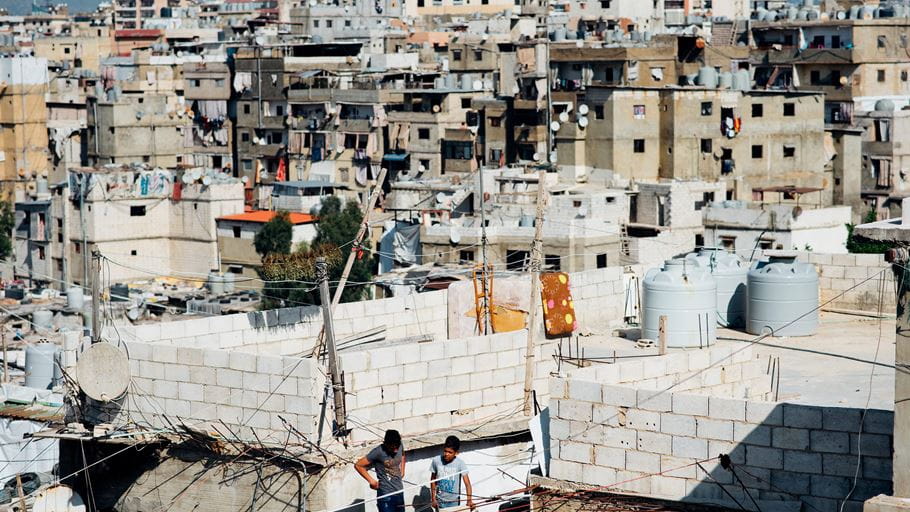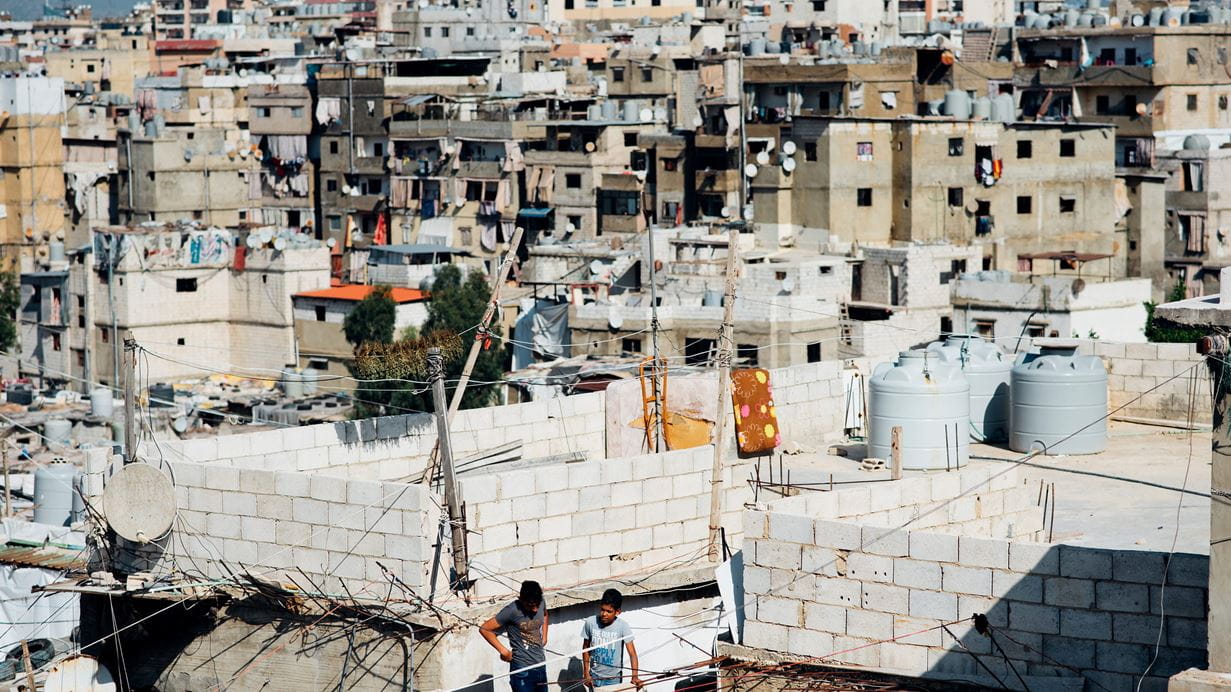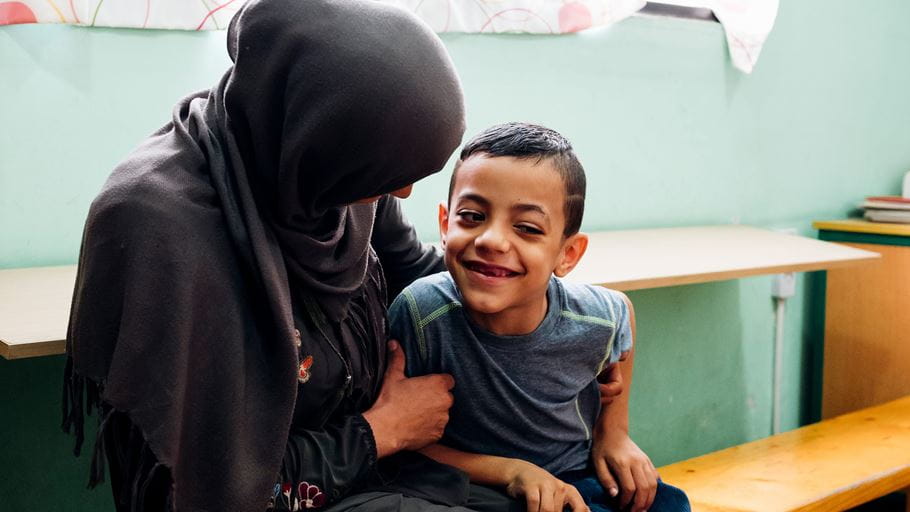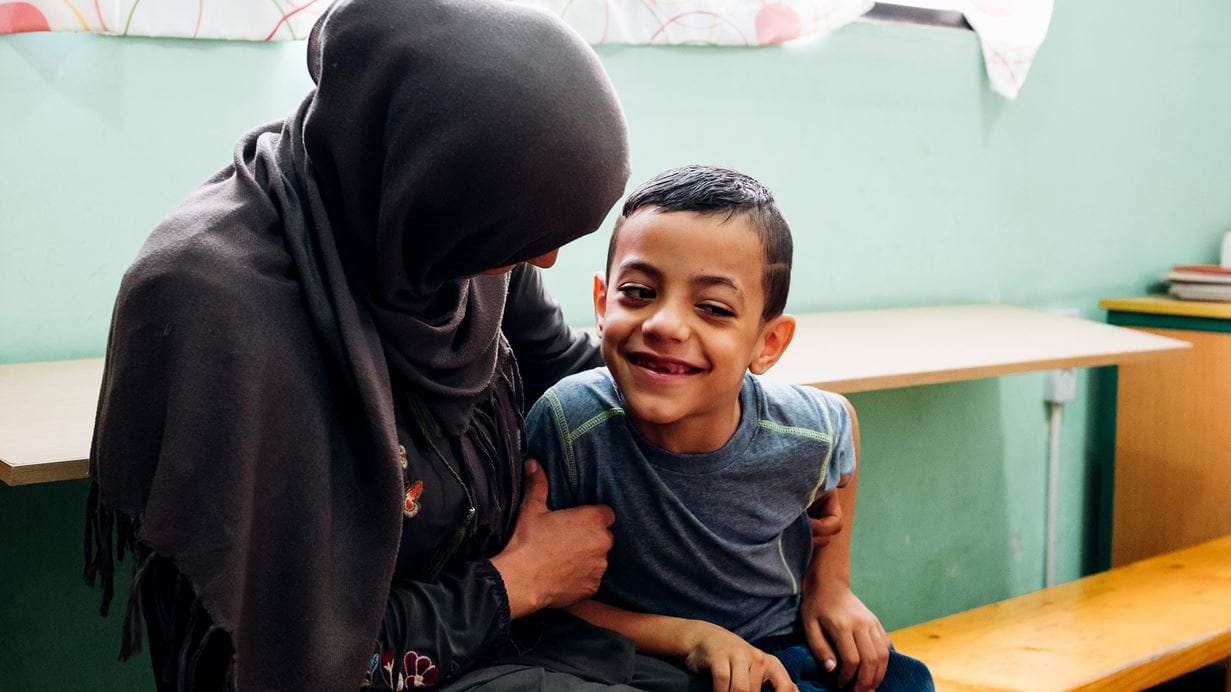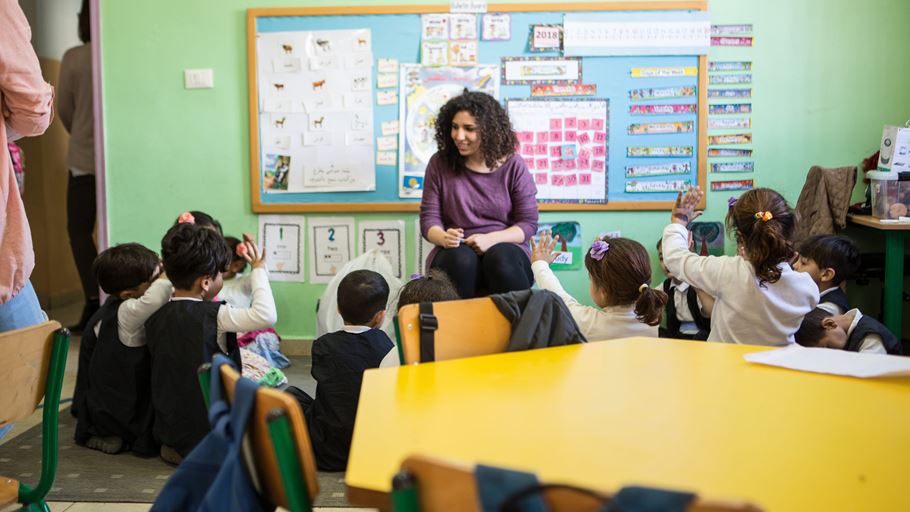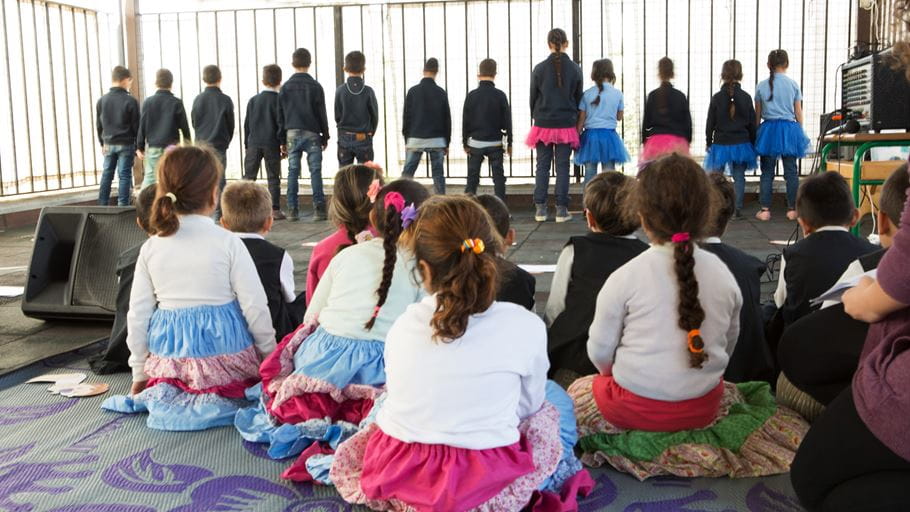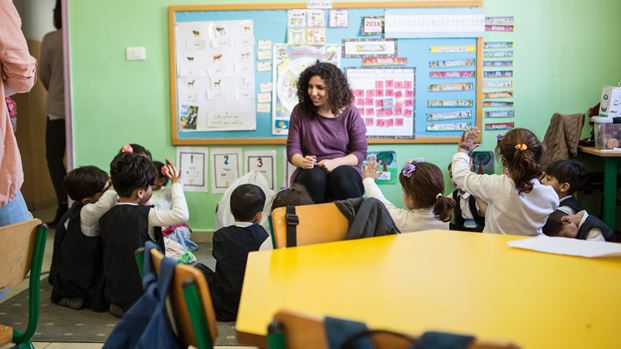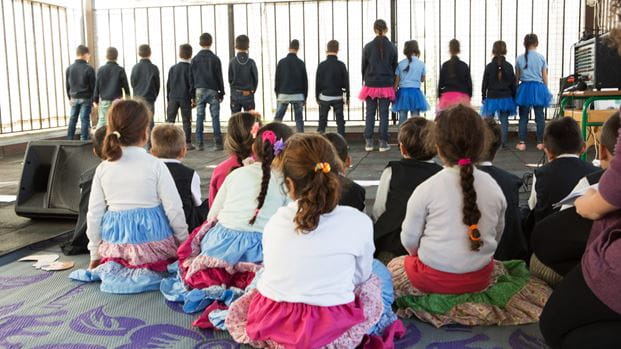Tahaddi means ‘challenge’ in Arabic. And challenge is exactly what the Tahaddi Center – who Tearfund supports through a local partner in Lebanon – is doing. They are challenging injustice, building relationships and providing a way for some of the most marginalised people in the country to access healthcare, education and skills training. And it’s making a huge difference to people living in poverty.
Catherine, who is the director of the education centre at the Tahaddi Center, tells us how they went from serving one family to an entire community – and how God and prayer has been at the heart of it all.
Where the story began
‘The story of Tahaddi began more than 25 years ago,’ says Catherine. ‘We used to go with some friends to a specific family where we would teach them a bit of Arabic and maths and do some activities with the children. And then other children came and joined us and later, the other co-founder, Agnes, who is a doctor, came to Lebanon with her family.
‘I wanted to show her where we used to take care of this group of children, but the place where they used to live had been removed and we couldn't find the families again. And [people in the area] told us, just go a bit further and you will find them.’
Catherine walked with Agnes around 200 metres and found families living in shacks. Some of them had closed off their homes with cardboard or wood. They didn’t find the family they were looking for – but what they did find were families who they knew they could use their skills to help.
And that is where – on that spot – the Tahaddi Center was born.







